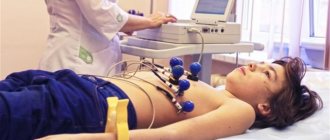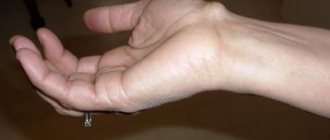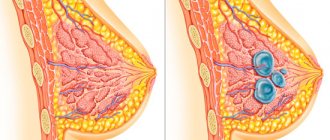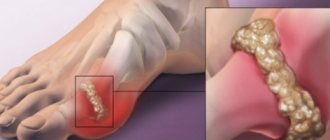What is intoxication?
Intoxication is an unhealthy state of a person in which he is exposed to toxic substances from the outside and inside. Such substances can cause the most serious abnormalities in the functioning of organs and completely disrupt the life cycle. Intoxication can be exogenous and endogenous. In the first case, what does the penetration of toxic substances into the body from external sources mean? In the second case, these substances come from the body itself and are formed there due to various factors.
Treatment (detoxification)
Treatment of body intoxication is a series of measures that can be used to overcome the symptoms of the disease and remove toxic substances from the blood. In this case, therapy implies:
- Relieving the cause and relieving symptoms. If this is not done, then the acute form of the pathology will become chronic. Here it is worth performing gastric and intestinal lavage, and giving the patient medications that will prevent diarrhea.
- Reception of sorbents. Such means will be effective. Like, Sorbex, .
- Enzyme preparations. Treatment of intoxication will occur with the help of such agents as Pancreatin, Festal.
- Bacterial medicines. Thanks to them, it is possible to establish the microflora of the intestines and stomach. It is advisable to use Lactobacterin and Bifidumbacterin.
- Diuretics and liver cleansers.
- Taking antioxidants. These include Nicotinic acid, Benzoic acid and Selenium.
- Vitamin therapy. Moreover, it is not necessary to take pharmacy vitamin complexes. You can saturate your body with vitamins found in foods.
Intoxication is a serious pathological process that can occur for a variety of reasons. The main thing in this case is to pay attention to the symptoms in time and begin treatment. Otherwise, complications and the poisoning becoming chronic cannot be ruled out.
Infectious disease doctor, private clinic “Medcenterservice”, Moscow. Senior editor of the website "Poisoning Stop".
Signs of intoxication of the body sometimes have dangerous manifestations. Symptoms of the negative effects of toxic substances can be eliminated with the help of special treatment.
Intoxication of the body can occur due to various circumstances. A person is constantly exposed to toxic products, as evidenced from time to time by certain signs. It is important to promptly recognize the symptoms of intoxication of the body and eliminate poisons of various origins.
Causes
This problem in the body occurs for a variety of reasons:
- The external environment is the most common cause . This is due to chemicals, heavy metals, toxic substances of plants and animals, decomposition products of microorganisms, low-quality products, and medicines.
- Endogenous intoxication occurs when there are problems with tissue integrity . This is caused by burns, injuries and radiation damage.
- Intoxication occurs in the body due to its own failures. An example is renal failure, in which manifestations of uremic intoxication are real. Sometimes in this case the metabolism is completely disrupted.
Causes and symptoms of body intoxication
Intoxication may be associated with:
- food poisoning (intoxication due to poisoning is associated with the ingestion of toxins produced by bacteria multiplying in a spoiled product, or with the consumption of poisonous mushrooms, plants, etc.);
- infectious diseases: intestinal infections, pneumonia, influenza, tonsillitis, sinusitis, meningitis, measles, chicken pox, scarlet fever, etc.;
- sepsis;
- helminthic and parasitic infestations;
- alcohol abuse (alcohol intoxication);
- severe liver diseases leading to disruption of its detoxification function;
- consumption of toxic substances or drug overdose;
- severe kidney pathologies (renal failure, uremia);
- malignant neoplasms (oncological processes in the body are always accompanied by the development of chronic intoxication);
- severe disruption of the intestinal microflora (severe intestinal dysbiosis leads to suppression of the natural intestinal microflora, active reproduction of opportunistic microorganisms and the development of intoxication);
- unbalanced nutrition and the development of acute and chronic diseases of the gastrointestinal tract.
Types of intoxication
The course of this problem varies.
As a result, intoxication is divided into the following forms:
- Acute , during which the body is attacked by a large number of toxic substances. In such cases, he needs urgent detoxification. The best option would be to carry out all manipulations and procedures in the presence of the attending physician. In acute intoxication, there is a significant increase in temperature, vomiting, diarrhea, joint, muscle and headache, sometimes everything can be complicated by loss of consciousness.
- Subacute intoxication is observed after its acute course. At this time, the body also needs to be cleansed of toxic substances. Subacute intoxication is accompanied by low-grade fever, disruption of the gastrointestinal tract, fatigue, sleepiness and fatigue throughout the body.
- Chronic intoxication is observed as the consequences of its acute and subacute forms.
Prevention is better than dealing with consequences
Intoxication leads to negative consequences. Especially when a person gets chronic intoxication. Long-term accumulation of toxins undermines health and causes other chronic diseases. These are various allergic or inflammatory processes, diseases of the liver, kidneys and respiratory organs. Since the immune system suffers, many emerging diseases can become chronic. If the toxin gets on the skin, it can cause scars.
Severe intoxication of the body often results in disability or death.
To protect your health, it is necessary to take preventive measures in advance. To do this, you need to adhere to a healthy lifestyle: eat healthy foods, avoid bad habits, spend time outdoors, and exercise. After all, even an irregular eating schedule or a sedentary lifestyle makes a person more vulnerable to negative environmental influences, as a result of which the body is able to accumulate toxins.
We recommend reading: Development of a 5 month old baby
The human body is often attacked by various harmful substances. To protect your health, it is equipped with a whole system that neutralizes toxins. But if there are so many toxic substances that this system cannot cope with the task, the person is exposed to various types of intoxication.
What are its symptoms? What could it lead to? How to relieve intoxication? We will talk about this further.
The nature of the toxin and how it entered the body cause certain symptoms. Its dose is important. Although it should be noted that the toxicity of a substance is determined not by the dose that enters the body, but by the dose that is distributed throughout the body through the circulatory system. Symptoms are also affected by the ability of the substance to accumulate in the body.
Symptoms of intoxication
Symptoms of intoxication are very extensive and have different expressions. Their manifestations are determined by the nature of the toxic substance, physical and chemical properties, affinity to certain organs, physiological systems, subcellular structures, body tissues, produced enzymes and existing receptors. For example, psychotropic, cardiotropic, hepatotropic, lipotropic, mutagenic, blood, carcinogenic, ototoxic and various other substances containing toxins are isolated.
A significant role in the intake of toxins from the external environment is played by the concentration of the toxic substance and how exactly it enters the body and spreads in it. It is also important where they accumulate and how they regularly enter the body - one-time, repeatedly, or continuous exposure. When intoxication has a repeated or continuous form, the impression of a cumulative effect or addiction is often formed. This manifests itself in poisoning with mercury, digitalis, lead, morphine, arsenic, as well as regular alcohol.
The consequences of intoxication of the body are determined by the personal reactivity of the body. This implies sufficient functionality of the mechanisms for resisting intoxication, in other words, the correct functioning of the immune system, external and internal barriers, excretory system, nonspecific defense of the body, endogenous chemical detoxification systems.
And yet, depending on the degree of intoxication, different symptoms appear. Acute intoxication is characterized by a fairly high body temperature, severe pain in the muscles, joints and head. Often severe intoxication is accompanied by uncontrollable diarrhea and vomiting. When exposed to strong toxic substances, frequent loss of consciousness or a dangerous coma with the threat of loss of life is possible.
Subacute intoxication is accompanied by elevated (subfebrile) body temperature up to approximately 38 °C, noticeable headache, joint and muscle pain, as well as dysfunction of the liver, stomach, intestines and other equally important organs. With this type of intoxication, a feeling of fatigue and drowsiness appears.
In case of chronic intoxication, which occurs as a result of acute intoxication that has not been fully cured and insufficient self-cleansing of the body, the following manifestations may occur: depression, irritability, nervousness, fatigue, insomnia or drowsiness, headaches become more frequent, changes in body weight occur, and serious problems appear. with the intestines in the form of flatulence, diarrhea or constipation.
When intoxicated, the human skin also suffers, an unpleasant odor appears, and skin diseases are provoked - acne, furunculosis, dermatitis. Often accompanied by a noticeable decrease in immunity, which affects the increase in the frequency of viral diseases and allergic reactions. Sometimes there is a distortion of the immune system (autoimmune diseases). Intoxication also affects a person’s appearance. His hair becomes dull and thin, his skin loses firmness, elasticity and healthy color.
There are a lot of symptoms of intoxication and it varies from person to person. As a rule, the weakest parts of the body always suffer from intoxication.
Diagnosis of intoxication
It is possible to determine the level of intoxication in the body with the help of special medical examinations, the results of which must be interpreted and summarized with a diagnosis.
Types of diagnosis of intoxication include clinical, in which indicators related to a particular poison or a group of compounds similar in mechanism of action are determined, as well as laboratory, which results in the comparison of poison or its metabolites in biosubstrates. It should be noted that during laboratory diagnostics the necessary biochemical tests are carried out, the results of which reveal changes in the functions of organs and systems characteristic of poison.
Another type of diagnosis is pathomorphological, aimed at accurately determining specific intravital or postmortem morphological symptoms of intoxication.
How does chronic intoxication manifest itself?
The causes of this problem are:
- Living in places with poor ecology.
- Consumption of poor quality food in the daily diet.
- The use of low-quality products and low-quality household chemicals, such as detergent or powder, for personal hygiene purposes.
Chronic intoxication manifests itself:
- Prolonged fatigue with low performance indicators.
- A constant state of nervousness, because toxic substances attack nerve cells.
- Periodic headaches.
- Problems with sleep.
- Failure in the immune system.
- The appearance of a foul body odor.
- Deviation in body weight indicators.
- Malfunctions in the gastrointestinal tract, accompanied by flatulence, diarrhea and constipation.
- Allergic manifestations, skin rash.
- Premature manifestations of aging in the form of sagging skin, dull hair and brittle nails.
It should be noted that this list may not be complete because everything happens purely individually, and accordingly, the symptoms of chronic intoxication of the body can be different and unexpected.
Prevention
Considering that intoxication can be caused by numerous toxins, their prevention is multifaceted. It includes the following main activities:
- promptly identify and treat infectious and somatic diseases;
- eat only high-quality food products that have not expired;
- drink only high-quality drinking water;
- store medications out of the reach of children with mandatory labeling of each drug indicating the name, dosage, and expiration date;
- do not eat unknown plants and mushrooms;
- when going into nature, wear clothes that provide maximum protection from possible bites from poisonous insects and snakes;
- carefully follow the rules and safety requirements when working with toxic substances.
Diagnosis of intoxication is not difficult; it can be much more difficult to determine the type of toxin that caused disruption of body functions. For this purpose, they resort to laboratory tests aimed at detecting the toxin itself or its metabolic products in the biological fluids of the body.
Alcohol intoxication
Judging by statistical data, alcohol intoxication is one of the most common problems among the population. This severe psychological condition is caused by the presence of large amounts of ethyl alcohol in the human body. It is worth noting that alcohol intoxication negatively affects not only people’s consciousness, but also the entire functioning of their organs.
Alcohol poisoning of the body is manifested by the following symptoms:
- A headache that appears after a sharp dilation of blood vessels from a dose of alcohol.
- Nausea accompanied by vomiting. These unpleasant symptoms are caused by ethanol entering the body and are considered its real protection.
- Dizziness, which occurs when there are problems in the functioning of the cerebellum.
- Thirst that occurs almost immediately after drinking alcohol.
It is important to know that small doses of alcohol cause intoxication. This happens if the alcoholic drink is of low quality or if it was taken by a child.
Types of food poisoning
The following types of food poisoning are distinguished:
- Toxicinfections of mixed nature (products contaminated with enterococci, E. coli).
- Specific toxic infections: botulism and salmonellosis. Botulism can survive in canned food. Even stewed meat can cause poisoning. The consequences of such intoxications are extremely severe, including death.
- Intoxication of non-microbial origin. They occur when consuming inedible mushrooms, poisonous berries, and garden plants grown with an excess of synthetic fertilizers. This also includes poisoning by products that were stored in low-quality plastic containers and saturated with toxic plastic (polystyrene, polyvinyl chloride).
READ ALSO: Facial care at home (creams, masks, scrubs, peelings, etc.)
Drug intoxication
A person may suffer from drug intoxication for various reasons. Its symptoms depend on what medicine the patient was poisoned with.
- An overdose of Aspirin causes headache, nausea, vomiting, and diarrhea. Sometimes such intoxication is accompanied by shortness of breath, increased pulse and decreased blood pressure.
- “Heart medications” cause diarrhea, nausea gives way to vomiting, and stomach pain. In frequent cases, headache occurs. Sometimes there is a slowdown in the pulse, a malfunction of the heart, and in extremely severe cases it can stop. Older people become delusional and suffer from impaired brain activity.
- Intoxication with sulfonamides is manifested by renal colic, acute pain, and lack of urination. Sometimes nausea, vomiting and an allergic reaction may occur.
Each person reacts differently to a particular medication. Some, for example, may experience increased salivation, while others notice dry mouth.
But it is worth remembering that poisoning with medications in frequent cases contributes to a change in appearance, the skin becomes red, pale, or all kinds of irritations appear on it. The nervous system reacts ambiguously to such poisonings, and the functioning of the brain changes.
Symptoms of body intoxication in adults
Symptoms of mild intoxication may include:
- headache and dizziness;
- weakness, lethargy, drowsiness, decreased performance, increased fatigue;
- nausea and vomiting;
- abdominal pain and bloating;
- increased body temperature;
- unhealthy (yellowish, gray or sallow) complexion;
- belching and heartburn;
- diarrhea.
With moderate intoxication, repeated vomiting, severe muscle weakness, apathy, lethargy, constant thirst, severe headache, fever, chills, pain in muscles and joints are noted.
Severe intoxication is accompanied by impaired consciousness, a significant and sustained increase in body temperature, heart rhythm disturbances, the appearance of heart murmurs, coldness of the extremities, marbling or yellowing of the skin, and tremor of the extremities. Delirium, hallucinations, seizures, increased bleeding, decreased blood pressure, tachycardia (rapid heartbeat) or bradyarrhythmia (slow heart rate) may occur.
Also, the symptoms of intoxication depend on the cause of its occurrence.
In case of intestinal infections or poisoning, the first symptoms of intoxication are: severe nausea, vomiting, diarrhea, abdominal pain, bloating and flatulence.
For pneumonia, flu, etc. There is an increase in body temperature, the appearance of chills, pronounced weakness, muscle and joint pain, shortness of breath, and scleral hyperemia.
Intoxication due to malignant tumors is accompanied by constant nausea, loss of appetite, loss of body weight, decreased performance, constant weakness, lethargy and drowsiness, increased sweating (often at night).
In case of intoxication against the background of liver dysfunction, jaundice, nausea, vomiting, increased body temperature, the appearance of palmar (palmar) erythema, spider veins, varicose veins, and increased bleeding are noted.
About children
Children are more difficult to tolerate various types and forms of intoxication. These phenomena are much more dangerous for them than for adults. In most cases, poisoning in children occurs stronger and faster than in adults, although the manifestations are practically no different. Only their appearance occurs a little earlier and they are more clearly expressed.
If a child has been poisoned, you should not hesitate to go to the hospital. It is necessary to make a correct diagnosis and prescribe effective treatment as soon as possible. This will help decide the fate of the baby.
First aid
In the treatment of intoxication, timely first aid is crucial. The earlier the necessary therapeutic measures are taken, the greater the chance that the disease will pass without dangerous consequences.
An accurate diagnosis can be established after some time, but you cannot wait for its determination. It is necessary to detoxify the body and eliminate the symptoms of dehydration as soon as possible.
At the first symptoms, the poisoned person needs to rinse his stomach. You should not prevent vomiting or bowel movements: in this way the body tries to get rid of poisons. After each incident of vomiting or diarrhea, you must take at least 200 ml of fluid to replenish your moisture reserves.
To restore electrolyte balance, it is recommended to use special powders that promote rehydration. If you don’t have any in your home medicine cabinet, you can give the victim water with a small amount of table salt dissolved in it.
To help the body eliminate toxic substances, it is necessary to take sorbent agents. These are drugs that, moving through the digestive tract, act like a sponge, collect toxins and remove them from the body in a natural way.
Among the effective sorbents are activated carbon, Polysorb, Enterosgel.
In case of any food poisoning, it is better to seek medical help. Specialists will determine whether the victim requires hospitalization. In case of mild intoxication, doctors will help with recommendations for a speedy recovery.
Small children and elderly people, pregnant women are subject to mandatory hospitalization.
Also, indications for treatment in a hospital are: emptying the rectum more than ten times a day with blood, profuse vomiting with bile or blood, fever, temperature more than 39 degrees.
Treatment
Treatment of all types of this pathological process is aimed primarily at eliminating the pathogen and reducing the intensity of symptoms of intoxication in the body.
Treatment of mild alcohol-type pathology does not involve medical assistance; only washing and ingestion of activated carbon are used. The second stage is treated with droppers of vitamins and glucose solution. In case of acute intoxication of any type, it is necessary to send the patient to a clinic for rehabilitation.
Cancer intoxication therapy is aimed at detoxification and mitigation of the symptoms of the concomitant disease. To do this, injections of various medicinal substances are carried out, and in case of damage to the skin, dressings with antimicrobial drugs are used. For insomnia, sleeping pills are prescribed, and for depression, antidepressants are prescribed.
Treatment of tuberculosis intoxication, in general, depends on chemotherapy, the course of which can last from several months to one year. Physiotherapy and breathing exercises are also applicable. In general, the prognosis is favorable, complete recovery of the patient is possible.
In any case, it is necessary to perform gastric lavage, and in case of liver intoxication, diuretics are prescribed. The prognosis for treatment of tuberculosis and cancer intoxication is favorable, because people are treated for the accompanying illness. If alcohol-related pathology is not treated promptly, a person may fall into a coma.











